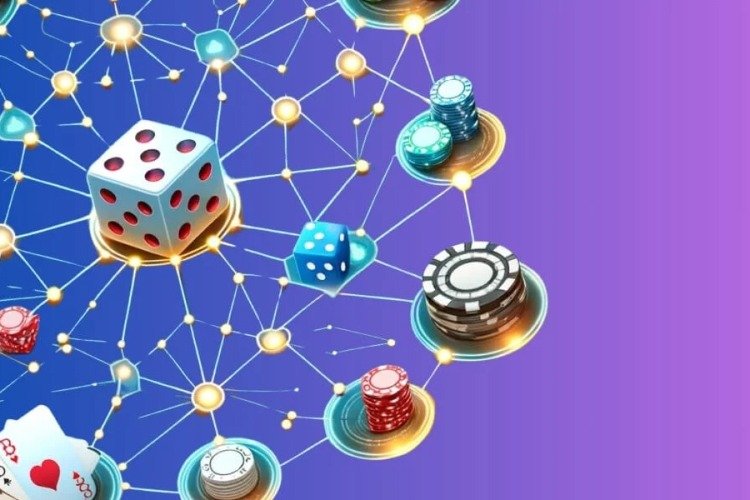Decentralized Gaming: How Blockchain is Redefining the Online Casino Industry

The world of online gaming is evolving rapidly, and blockchain technology is at the heart of this transformation. For decades, online casinos have provided entertainment to millions, but challenges such as transparency, trust, and fairness have remained critical concerns for players. Enter decentralized gaming—a revolutionary approach that leverages blockchain technology to address these issues and reshape the industry.
In recent years, the rise of decentralized platforms has introduced a new standard of transparency and fairness. Players now have access to verifiable outcomes, automated smart contracts, and a trustless gaming environment. This paradigm shift is evident in platforms offering innovative slot games and casino experiences, such as High Roller’s online real money casino games and slots, which blend traditional gaming excitement with cutting-edge technology to enhance player experiences.
What is Decentralized Gaming?
Decentralized gaming relies on blockchain technology, a distributed ledger system that records transactions across a network of computers. Unlike traditional online casinos, where outcomes are managed by a central authority, decentralized platforms ensure that all transactions and game results are immutable and verifiable. Blockchain eliminates the need for intermediaries, replacing them with automated systems that provide transparency and fairness.
In this setup, smart contracts play a pivotal role. These self-executing contracts operate on blockchain networks, enforcing the rules and distributing payouts automatically when predefined conditions are met. Players benefit from knowing that the odds are fair and cannot be altered by the casino.
Key Benefits of Blockchain in Online Casinos
1. Enhanced Transparency
One of the most significant advantages of decentralized gaming is the ability to verify outcomes. Blockchain records every action, including bets placed and results generated, ensuring that games are not manipulated. Players can independently audit the fairness of each game, fostering trust between them and the platform.
2. Improved Security
Blockchain technology provides unparalleled security, protecting players’ sensitive information and funds. Decentralized casinos do not store large amounts of user data, reducing the risk of breaches. Cryptocurrency transactions also ensure anonymity, providing an extra layer of protection for players.
3. Elimination of Third-Party Interference
Traditional online casinos often rely on third-party payment processors, which can result in delays, fees, and restrictions. Blockchain enables instant, borderless transactions using cryptocurrencies. This not only speeds up the deposit and withdrawal process but also reduces costs for players.
4. Access to Global Markets
Decentralized platforms operate on blockchain networks, making them accessible to players worldwide. They bypass the regulatory hurdles and payment restrictions often associated with traditional online casinos. This global accessibility enhances the gaming experience, particularly for players in regions with limited access to online gambling platforms.
Blockchain Use Cases in the Casino Industry
Provably Fair Gaming
Blockchain ensures provably fair gaming by enabling players to verify the randomness of game results. This feature is particularly relevant in slot games, where outcomes are determined by random number generators (RNGs). Blockchain-based RNGs use cryptographic algorithms to ensure fairness, with results logged on the blockchain for transparency.
Tokenized Rewards and Loyalty Programs
Decentralized casinos often introduce their own cryptocurrencies or tokens, which players can use to bet, trade, or redeem for rewards. These tokens are typically part of blockchain-based loyalty programs, offering players greater value and flexibility compared to traditional systems.
Decentralized Autonomous Organizations (DAOs)
Some decentralized gaming platforms are exploring DAOs, which allow players to participate in decision-making processes. By holding tokens, players can vote on platform updates, new game introductions, and other key decisions. This level of involvement enhances community trust and engagement.
The Future of Decentralized Gaming
As blockchain technology continues to mature, the potential applications in the online casino industry will only expand. Innovations such as non-fungible tokens (NFTs) and the metaverse are already making waves, promising to redefine how players interact with casino games. Imagine owning a unique slot machine skin as an NFT or participating in a virtual casino within the metaverse—these are no longer far-fetched ideas but emerging realities.
For players, the shift to decentralized gaming means a more secure, transparent, and fair environment. For operators, it opens up new opportunities to build trust, attract a global audience, and innovate in a competitive market.
Conclusion
Decentralized gaming is not just a trend; it’s a fundamental shift in how the online casino industry operates. By leveraging blockchain technology, platforms are redefining transparency, fairness, and security, creating a gaming environment that benefits players and operators alike. For those eager to explore the future of online gaming, platforms offering real-money casino games and slots, such as High Roller, exemplify how tradition and innovation can merge seamlessly.
To learn more about the transformative potential of blockchain in gaming, explore this comprehensive guide on blockchain’s impact on gaming.
By embracing the principles of decentralization, the industry is laying the foundation for a more equitable and exciting future in online gaming.